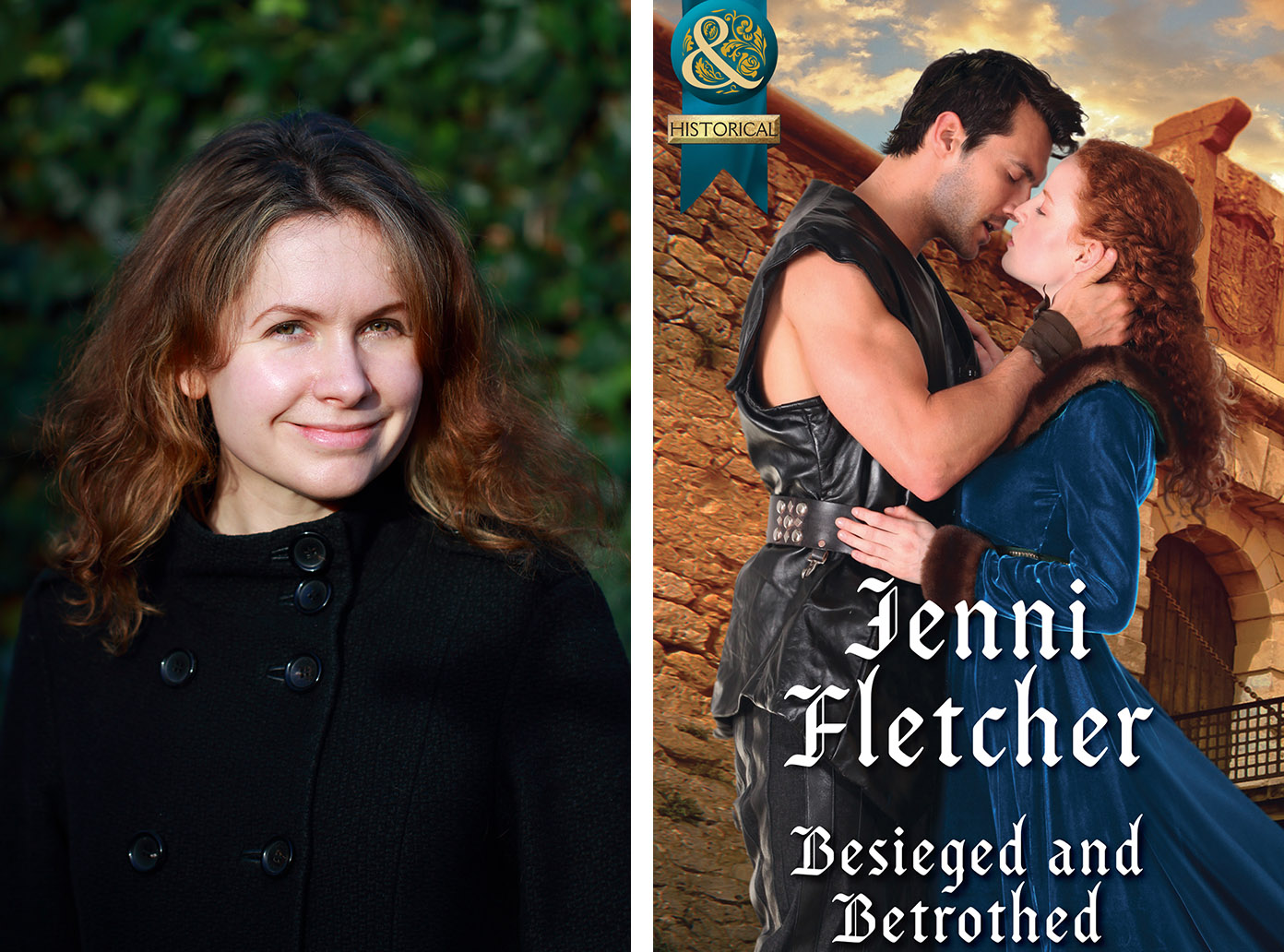Hints & Tips For New Writers #7
16 July 2018


This month I’m handing Hints & Tips over to some other writers. I asked on Twitter for people’s best and worst writing advice and then I asked a few of my favourite authors too. So that’s it for me! Over to these talented writers, a HUGE thank you to everyone who responded, and I’ll be back after the summer break. Happy writing! Jenni X
Celia Anderson (59 Memory Lane)
Writing friends are invaluable. Without my writing buddies I’d have given up long ago. When the rejections start coming in, your gang pick you up, dust you off and set you on the right path again, as you do for them. You moan together, celebrate together and swap endless tips as you go along. Conferences are a great place to meet soulmates, as are chapter meetings and the RNA parties. Everything is less scary when you know someone has got your back and is rooting for you!
Rhoda Baxter/Jeevani Charika (Girl on the Run / A Royal Wedding)
Best advice: Always ask why – why are they scared of spiders? Why would they do that?
Worst: Um… Write every day. Might work for some, but not me. I find write MOST days works.
Therese Beharrie (Tempted by the Billionaire Next Door)
I have three writing tips for aspiring authors: 1) Make time to write. Whether it’s five minutes before work, or an hour at lunch time. You have to write to be a writer. 2) Do your research. Find out which agents represent what you want to write or which publishers publish what you want to write. That way, you’ll be aware of what agents/editors are expecting and can keep that in mind. 3) Read. Read the books in the genre you’re interested in, or the books the publisher you’d like to publish with is publishing, or the books your dream agents represent. You have to know where your writing fits in, and reading is the best place to start.
Laurie Benson (One Week to Wed)
The best advice I could give is to just write. You can’t wait for the muse to strike or you might never finish that book. There are days you sit in front of your computer and you have no motivation or you just can’t think of what to write. Just write something. Literally anything. The words might not make sense at first, but after a while you might find that your writer brain starts to click and then you have a direction and what you are writing starts to work for the story. The first draft is there to fix and change, so anything you write is part of the process of figuring out where you want your story to go. Even if you delete a paragraph or an entire chapter (been there) you are still exploring possibilities. Oh, and if I could give a second bit of advice it would be, don’t be too hard on yourself. We write, hopefully, because we love to get lost in another world for a while. So get lost and have fun. Find the process that works for you. The rest will work itself out.
Carol Bevitt (#writingchat host)
The best piece of advice I was given was read your work aloud, and no matter whether it’s a novel or a short story it really helps; especially during editing as you can hear the trip points, inadvertent viewpoint or tense changes and dialogue that just doesn’t sound right.
Nicola Cornick (The Phantom Tree)
One of the best writing tips I was ever given was: “Trust in your own writing process.” As a new writer I was forever worrying over conflicting advice on whether I should have a big plan before I started or launch straight in, whether I should write a full draft before I allowed myself to revise the beginning of the book, and countless other things. Finally I accepted there was no right or wrong way, just the way that works for each individual writer.
Worst writing tip? “Write what you know.” I’ve never time travelled to Tudor England but I try not to let that stand in my way! This is where you let your imagination – and research – take flight!
Elaine Everest (Wartime at Woolworths)
Always treat your writing as a job and be as professional as possible. Don’t listen to people who talk about ‘writers block’ or you will end up making excuses not to write. If you are someone who has problems starting to write each morning, finish half way through a paragraph the night before, that way you are able to get stuck in straight away. Also, keep a pile of index cards by your computer, each having a line about a scene for your book. Alongside these and your novel outline you should have no problem getting started straight after breakfast.
Marius Gabriel (The Ocean Liner)
Nobody has ever given me a tip about writing. Not once in forty years. No hints, no advice, no pointers, no clues, nothing, nada, zip.
But here is my bit of self-taught advice, distilled from forty years of mistakes, discoveries, failures, successes and the occasional unmitigated disaster,
There are two ways of writing a book. Think about it a LOT, then write it fast. Or start without thinking about it, and be prepared to spend years groping in the dark.
That’s it.
Oh, and good luck!!
Fiona Harper (The Memory Collector)
The worst writing advice I’ve had is anything that was too prescriptive i.e. you MUST do it this way or that way, because we all have such different writing processes, and what works brilliantly for one writer may be the kiss of death to another!
The best bit of advice I have to give is that, in commercial fiction at least, the story is king. I feel sometimes we can get so caught up in the details that we forget to tell a good tale, so I’ve learned to listen to Stephen King when he says “kill your darlings” and cut anything that is getting in the way of a compelling story.
Elisabeth Hobbes (Beguiled by the Forbidden Knight)
As someone who can happily disappear down the research rabbit hole for hours without realising my tip is to go somewhere without the internet. Instead of stopping writing to go check facts put something like ‘crztypeofdagger’ so it shows up in the spellcheck and you can find out later.
Jan Jones (The Kydd Inheritance)
The worst writing tip I was ever given was to always finish writing for the day in the middle of a sentence. The idea behind this is that you then have a good starting point to the next day’s writing, but it would drive me demented because I’d get so worried I’d forget where the rest of the sentence was heading that I’d never sleep!
The best tip I was ever given was to never give up. Never ever.
Cora Lee (The Good, The Bad, and the Scandalous)
Make every scene 3 dimensional – use the 3 senses – everyone forgets taste and smell.
Alison May (Midsummer Dreams)
The best and worst writing advice I’ve ever received is probably ‘Show, Don’t Tell.’ It’s the best because it is absolutely the foundation for writing interesting and engaging prose. And it’s the worst because nobody understands it and a lot of the time two people who think they understand it don’t agree about what it means. For me ‘show, don’t tell’ means three things – it means that stuff needs to happen in your story. It means that the stuff that happens needs to happen ON THE PAGE. And it means that the stuff that isn’t part of your story really doesn’t need to be in the book.
Bella Osborne (A Family Holiday)
Write the bloody book. You can’t edit a blank page. If you really want to write then you have to make time. Worst advice? First novels are just for practise. Put it in a drawer and forget about it. I chose not to and it went on to be a Kindle top 20 bestseller.
Janice Preston (Lady Cecily and the Mysterious Mr Gray)
Apart from ‘finish the sodding book’ (courtesy of Alison May) I would say make sure you allow your characters time to react to events and therefore grow and change.
Lynda Stacey (House of Christmas Secrets)
Probably the worst tip I was ever given was by another author, who told me to put my first novel in a drawer and forget about it. I was told to see this as my apprenticeship, to maybe write one or two more and put them in the drawer too.
I was very pleased that I ignored this advice. I really believed in my story, and didn’t want to let it go. So, I re-edited it. and then I put it down for a few months while I wrote House of Secrets, this was classed as my debut novel, the novel that won the Choc Lit Search for a Star competition in 2015.
Following my success with this book, I once again went back to the book I’d written first, this book is now called Tell Me No Secrets, it’s been a best seller in it’s category, it was shortlisted for the Australian Readers Awards this year and I’m just a little bit proud of it.
So my advice would be…. if you believe in your story, keep it alive. Because you never know, someone at the other side of the world in might end up reading it and loving it so much that they recommend you for an award..!!
Harper St. George (The Viking Warrior’s Bride)
Someone told me this when I was just starting out and trying to find the time to write. Start at just 20 minutes a day and work your way up. If you’re already established in your writing routine and are looking for your version of success then my advice is tenacity. Hang on with everything you can, even your teeth, and just keep trying.
Catherine Tinley (The Captain’s Disgraced Lady)
A routine helps. Find something that works and stick to it. I work full-time and have other commitments, and I get in trouble when I fail to stick to my writing routine. Set a goal – even if it’s 500 words, 5 days per week, and try to stick to it.
Oh, and if the dreaded writer’s block strikes, just write your way through it. Yes, it’s rubbish, and yes, it doesn’t fit, and yes, you’re not sure if the work to date needs to be binned or seriously re-worked. But as you write, it immerses you in the process and, I find, sometimes ‘unsticks’ the blockage – through revelation or just perspiration!
*
There’s one last piece of advice I wanted to save to the end because I think it’s so true for all of us who have experienced rejections. It’s from Holly March @marcherwitch on how to deal with set-backs:
‘LET YOURSELF BE UPSET! Take some time to curl up and cry, or watch your favourite movie, and make twitter and your friends remind you how awesome you are… and then just start on mind-mapping the next one!’
*

Jenni Fletcher writes Medieval, Victorian and Roman romances for Mills & Boon and her fifth book The Warrior’s Bride Prize is out in September. She runs on caffeine and sugar and is happy to talk about books and/or period dramas all day.



